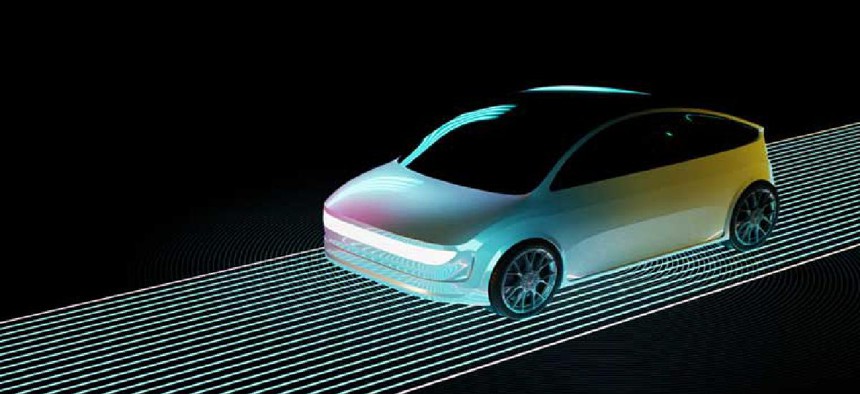Indiana to test EV charging concrete

Dynamic electric vehicle charging would make EV infrastructure more reliable and convenient.
Charging electric vehicles along the roadways has traditionally required a station, but researchers at the Indiana Department of Transportation (INDOT) and Purdue University have announced a project to develop the world’s first wireless charging concrete highway.
Using magnetizable concrete developed by the German startup Magment GmbH, this initiative plans to provide a cleaner and more accessible method for wireless EV charging. With the proposed solution, EVs would be seamlessly charged by the concrete as cars drive on it. Magment has already successfully deployed this technology with its MagPad, which is used to recharge electric forklifts in warehouses.
INDOT and Purdue will try to replicate the same technology on pavement and test whether the magnetized road can charge heavy trucks at 200 kilowatts or more. Magment’s current tech allows for the continuous transfer of up to 10 kilowatts.
The collaboration is part of the National Science Foundation’s Advancing Sustainability through Power Infrastructure for Road Electrification Initiative. ASPIRE previously supported research into rechargeable strips of pavement that would activate to charge a vehicle as it passed over them.
The project has three phases. The first and second phases will focus on optimizing and testing of the magnetized pavement and will be conducted by Purdue’s Joint Transportation Research Program. Phase 3 will be the actual construction of the road, where INDOT plans to build a quarter-mile stretch that will serve as a testbed for the technologies developed in the earlier phases.
“As electric vehicles become more widely used, demand for reliable, convenient charging infrastructure continues to grow, and the need to innovate is clear,” INDOT Commissioner Joe McGuinness said.
“The field of transportation is in the midst of a transformation not experienced since the invention of the automobile,” said Purdue’s Nadia Gkritza, professor of civil engineering and agricultural and biological engineering and ASPIRE campus director. “Through this research, we envision opportunities to reduce emissions and near-road exposures to pollutants, coupled with other transportation innovations in shared mobility and automation that will shape data-driven policies encouraging advances.”





